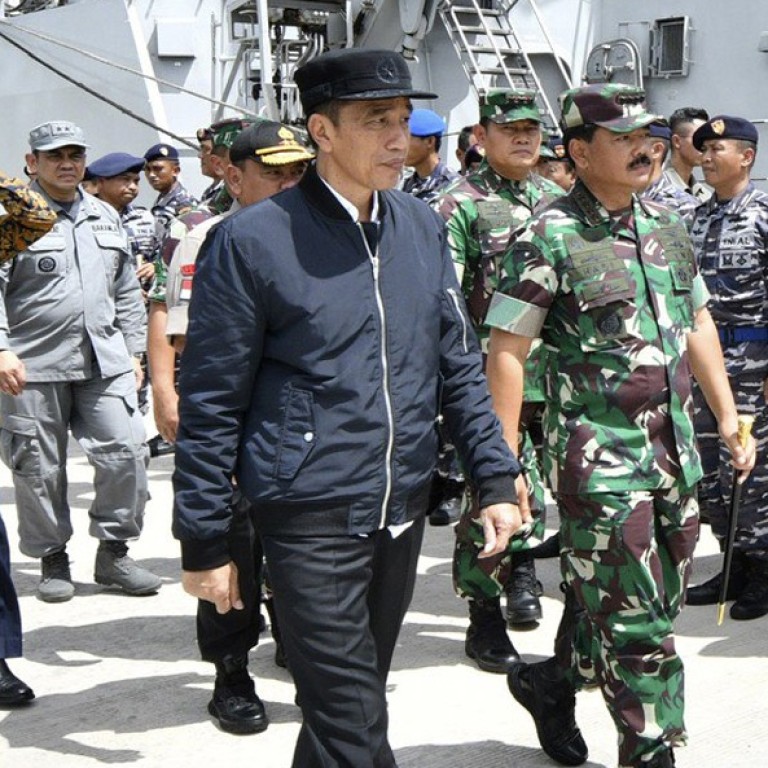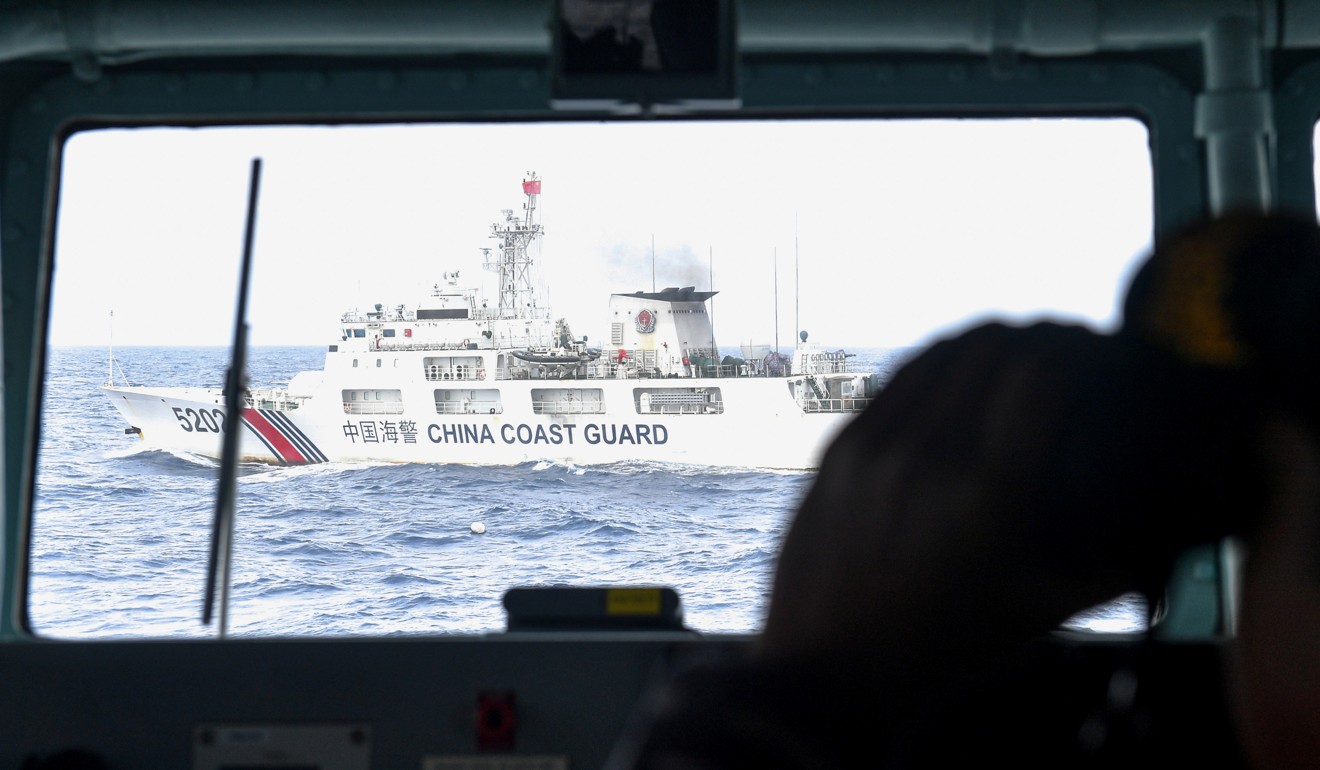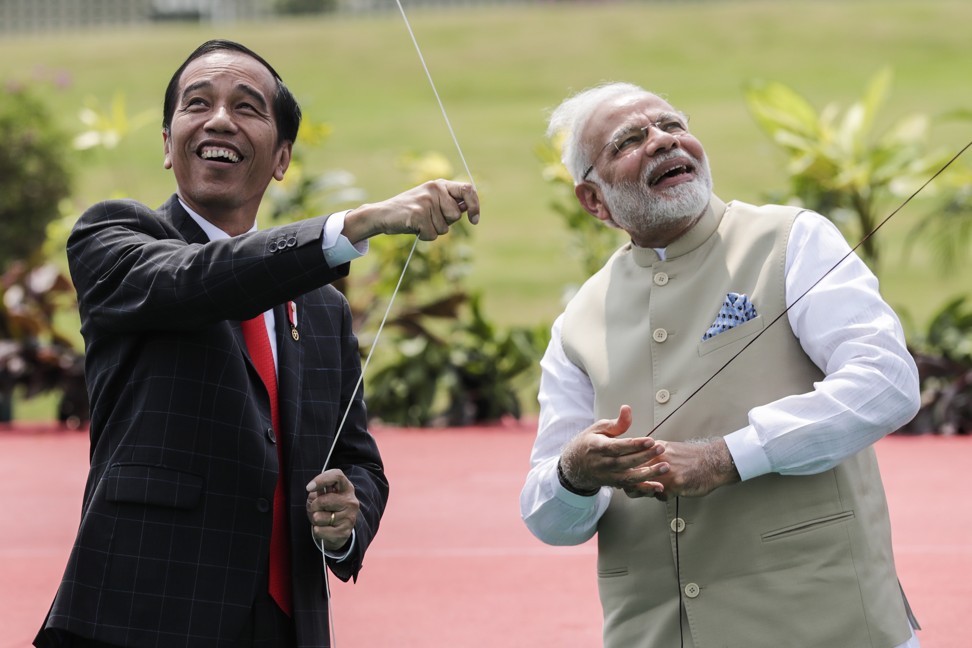
Analysis | Can India and Indonesia team up to counter China in the Indo-Pacific?
- India and Indonesia can work together to strengthen norms of maritime behaviour that would cover the disputed South China Sea
- China is likely to resist the move, but, with careful diplomacy, Beijing could be encouraged to accept this emerging order
No Indonesian president wants to wake up and find Chinese illegal fishing vessels flanked by the Chinese coastguard around the Natuna Islands at the edges of the South China Sea.
But last month, about 63 Chinese vessels made incursions into Indonesia’s exclusive economic zone (EEZ) in the north of the country, claiming “traditional fishing rights” as the basis for their presence.

This perception puts Widodo, better known as Jokowi, at risk of looking weak in his second, and final, term. And while plans are underway to mobilise 500 fishing vessels around the Natuna Islands to demonstrate the country’s sovereignty over the area, it is doubtful that this kind of deterrence will be successful or that it can be a viable long-term strategy.
Indonesia deploys fighter jets to patrol islands at centre of China spat
In his first term, Widodo promoted Indonesia as a key node of global maritime trade and created expectations that it would also champion territorial integrity in the seas. This has not substantially materialised, but it is not too late for the president to spearhead a regime of maritime security norms in the Indo-Pacific. However, it is a tall order for Indonesia to do this on its own, and this is where India can come in.
This week at the Raisina Dialogue, India’s premier conference on geopolitics and security, External Affairs Minister Subrahmanyam Jaishankar said India had become a “shaper and decider rather than an abstainer” in international affairs. In the Indian Ocean alone, he said his country had 16 white shipping agreements, conducted seven major HADR operations, extended lines of credit to 11 countries, trained over 1,000 troops, has military training teams in 11 countries, and conducted hydrographic training with five neighbours.
India’s focus on the Indian Ocean is also driven by its quest to balance China’s increasing maritime influence, as it grows more active in the area with a military base in Djibouti and infrastructure investment in Sri Lanka. In response, New Delhi has constructed a deep-sea port in Indonesia’s far west, close to its Andaman and Nicobar Islands.
Another benefit of partnering with India, which is expanding its naval and coastguard fleet, is that it will boost Indonesia’s constrained maritime capability.
NEXT STEPS
So how to start? A high priority is strengthening areas of shared concern, such as illegal fishing and piracy, through coastguard cooperation. Nilanthi Samaranayake, an Indian Ocean security analyst, also suggests promoting navy-to-navy activities.
India and Indonesia had a “shared opinion on EEZ activity, including on Chinese scientific vessels, freedom of navigation, and a shared interpretation of the United Nations Convention on the Law of the Sea (UNCLOS), which would help to bolster cooperation”, said Samaranayake, director of the Strategy and Policy Analysis Program at US-based think tank CNA.
Southeast Asia’s anxieties about US and China deepen: poll
The challenge will be maintaining that level of engagement which has been “very volatile” in the past, according to analyst Tanvi Madan of the Brookings Institute’s Project. Success would come if “they just are consistent”, and India must also be careful not to look domineering to other Southeast Asian countries, she said.
In practical terms, naval personnel would need to improve their English skills, said an Indonesian naval officer who wished to remain anonymous. The officer, who has a background in international engagement, also suggested further education and training exchanges for both navies to learn not just “about the other navy’s procedures, but the culture as well”.
Another Indonesian naval officer with extensive international experience highlighted the importance of information sharing between coastguards and navies.
Why fishing boats are on the front lines of the South China Sea
To push some of these practical initiatives along, each country must also sort out its domestic bureaucracy. India’s is known to be notoriously slow. Indonesia’s 13 or so agencies and bodies with overlapping maritime responsibilities remain a hindrance. That said, China’s bullying so early in Jokowi’s second term might just be the push his administration needs to sort out internal conflicts and secure his legacy on maritime issues.
Regional order building is no easy feat. But now is the time for Indonesia and India to invest in their shared Indo-Pacific future. China is likely to resist their joint leadership, but careful diplomacy can be used to encourage Beijing’s acceptance of this emerging order and, over time, help carve out a constructive role for all in the Indo-Pacific. ■
Natalie Sambhi is executive director of Verve Research, an independent research collective focused on the relationship between militaries and societies in Southeast Asia, and a research fellow at the Perth USAsia Centre

